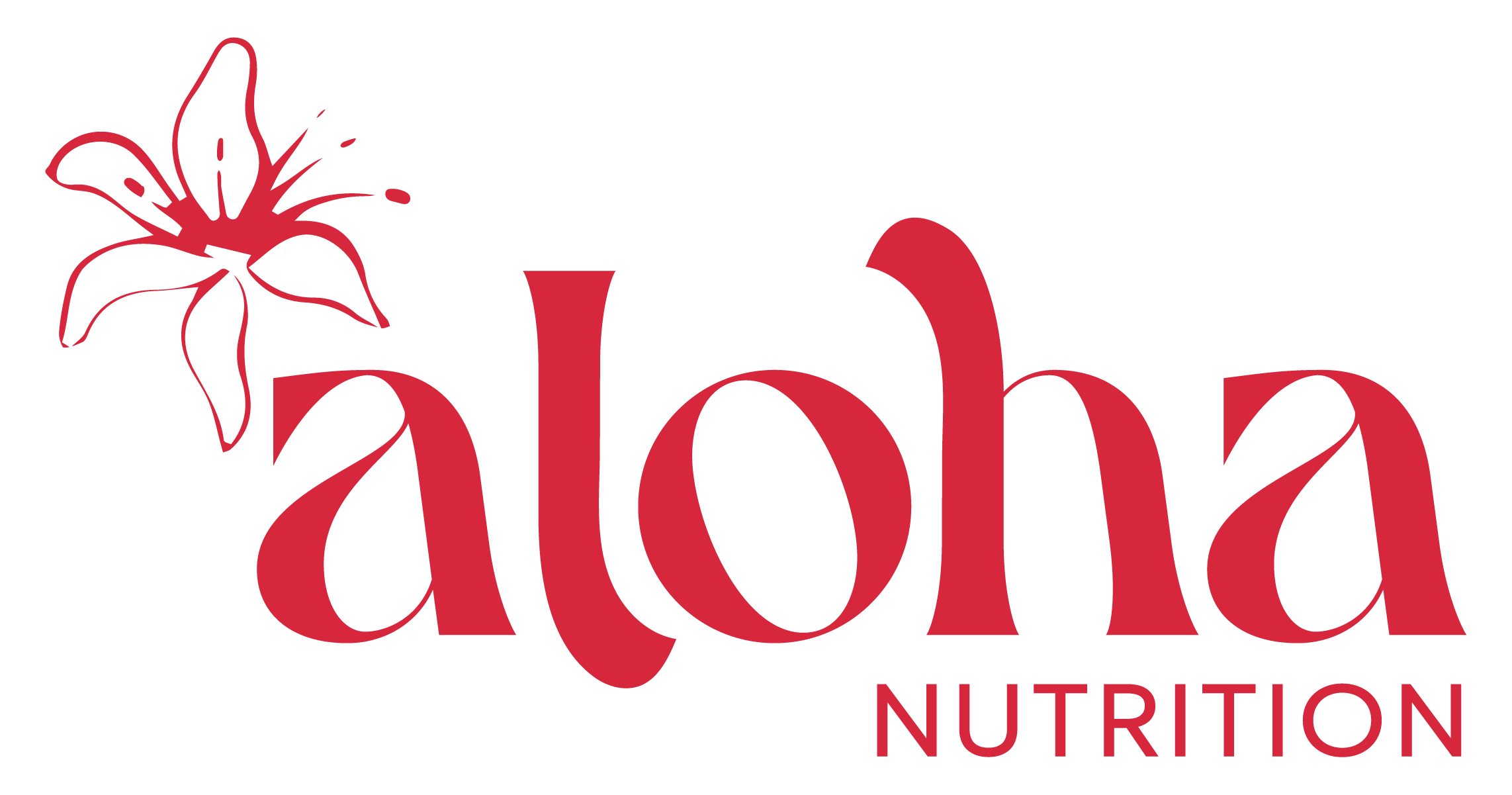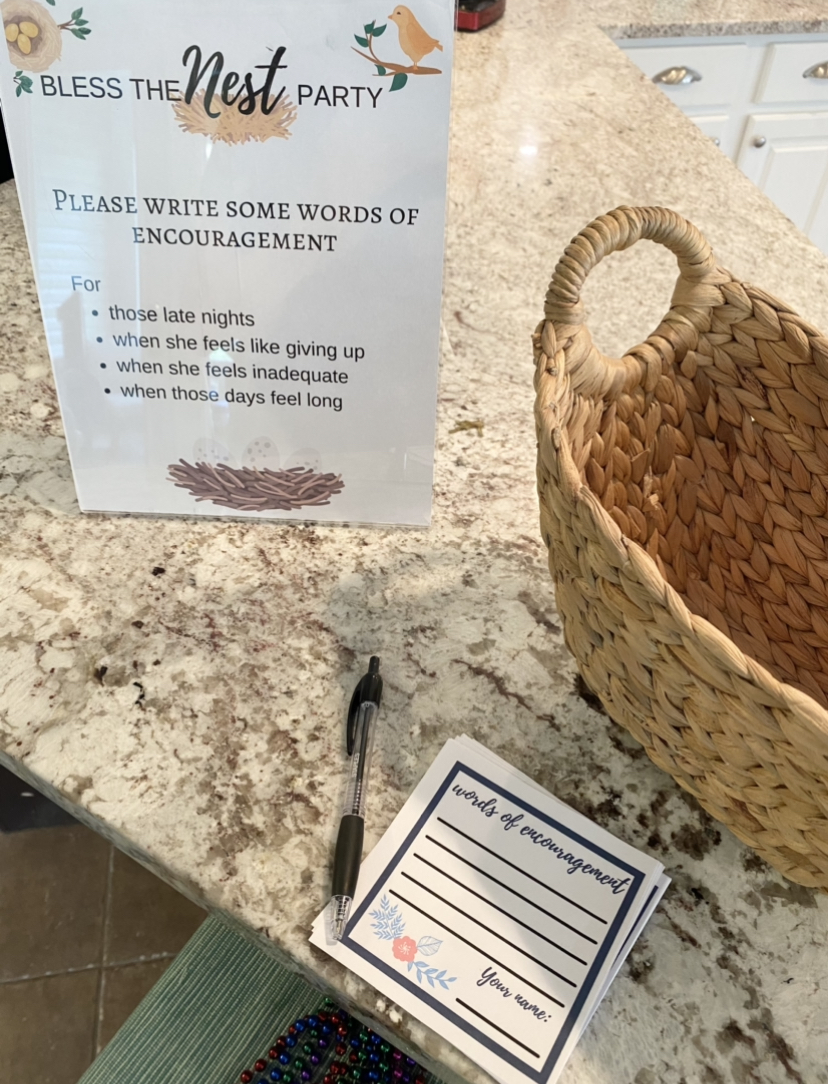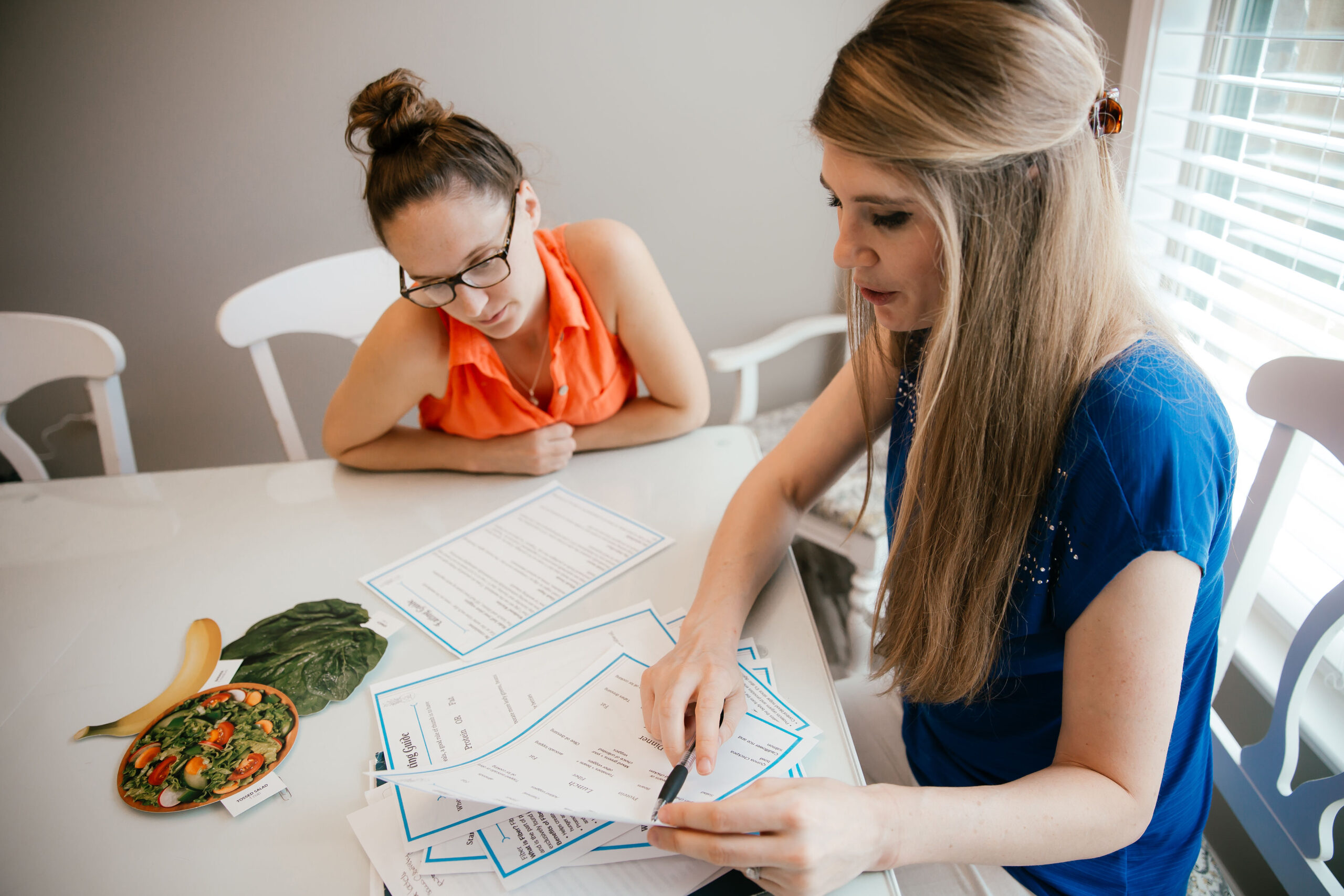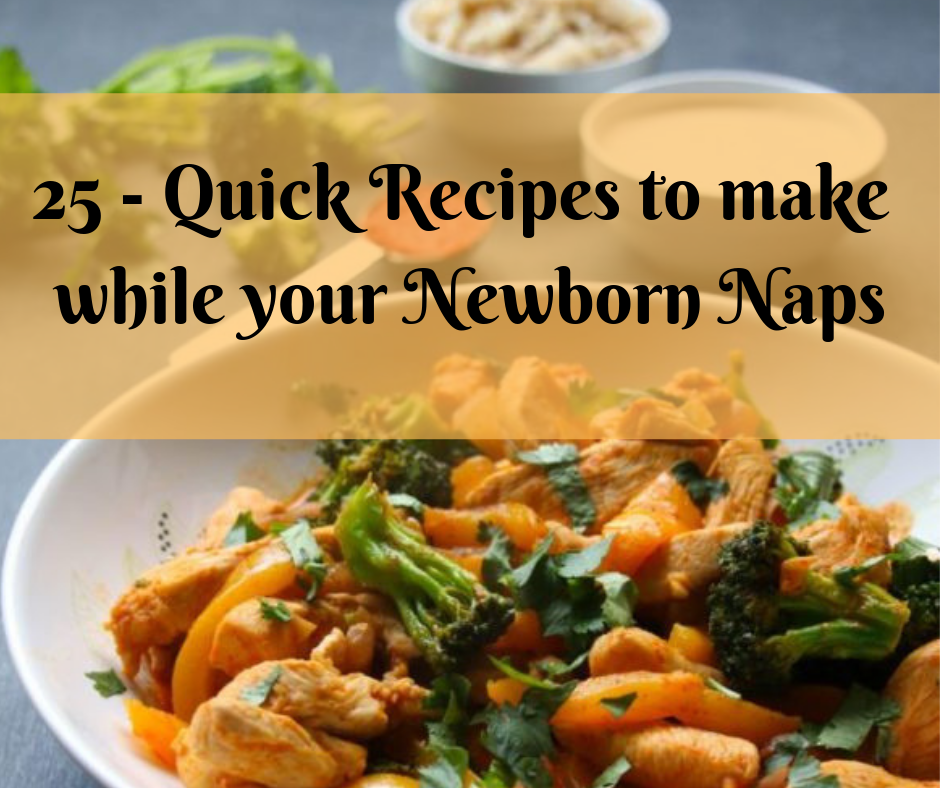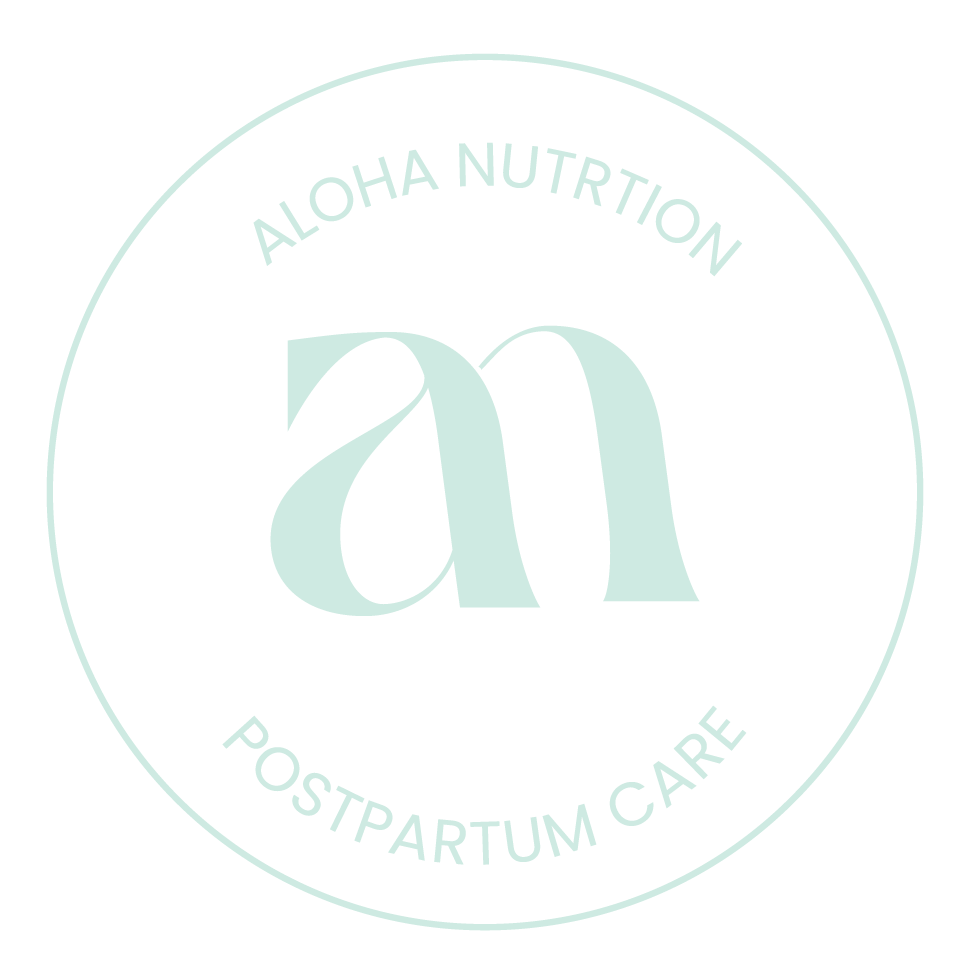You’ve brought the baby home, you’ve eaten all your frozen meals you made during pregnancy, your meal train your friends/coworkers put together have run out…and now you have to get back into the kitchen and cook something.
You’re tired, your baby is cluster feeding and eating every 30-45minutes or more often! Your husband’s paternity leave is up and you’re left alone. Man! The transition is rough. The sleep deprivation is real. Cooking healthy foods sounds like it’ll take an eternity so you end up ordering out.
Well what if I told you, eating healthy can give you energy. Eating healthy will make you feel better. Eating healthy will help with your postpartum healing. It can help prevent postpartum depression. Cooking healthy foods doesn’t have to take long or be super elaborate.
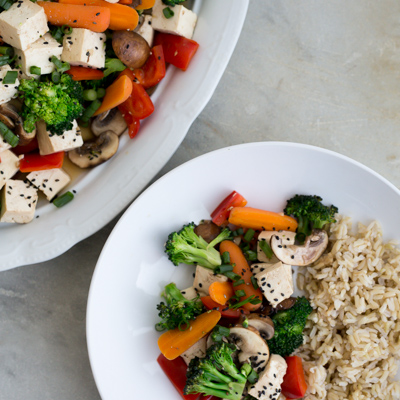
I reached out to my fellow registered dietitians to share their quick 15-20 minute recipes that are great for the postpartum period. But before I share the recipes, I thought I’d give some quick information on why nutrition is important postpartum, the benefits of eating healthy, and how to multitask with a newborn.
Why is nutrition important during the postpartum period?
Did you know that the nutrient needs are much higher in breastfeeding women, than when you were pregnant? You’re still growing a baby, just outside the womb. Nourishing yourself should still be a priority.
The “Fourth Trimester,” which is the three months following delivery, is a vulnerable time for moms. Many moms think that nutrition during pregnancy is all that matters and that once they deliver their baby, they don’t have to worry about eating healthy.
You carried a baby for 9 months, then depending on how your labor and delivery went, you’ll want to replenish your energy and nutrient needs, which have been depleted. If you tore or had a surgical birth, you’ll really need to make sure you’re getting adequate protein, vitamin C, zinc, collagen etc. Even if you had an uncomplicated birth, your body still requires adequate nutrition to restore your energy, to help adapt your shrinking uterus, regain skin elasticity, and meet your body’s energy needs to produce breastmilk, whether or not you choose to breastfeed.
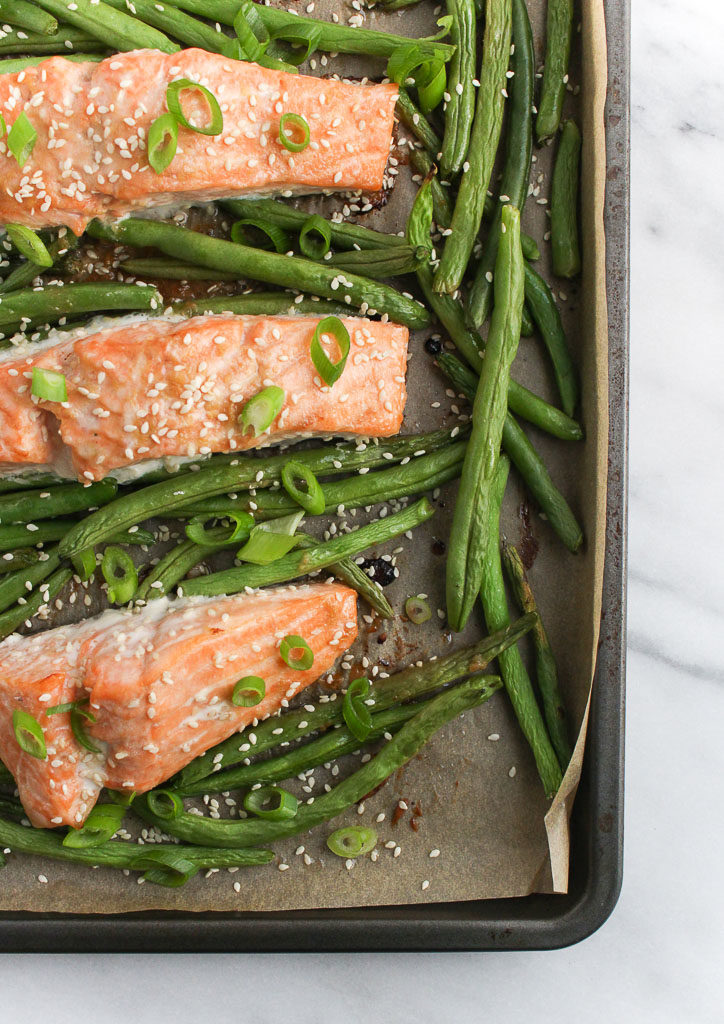
.In Lily Nichol’s book, Real Food for Pregnancy, she states “When you’re recovering from pregnancy and birth, there are tremendous shifts going on internally. Healing tissues that have been stretched, torn or cut require plenty of protein, especially the amino acids glycine and proline, which your body uses to make collagen…Electrolytes and fluids are crucial to replace those lost during labor. All of these nutrients are found in bone broth and any slow-cooked stews, soups, and curries that incorporate animal foods” (224).
Nichols stresses that animal foods, like red meat, eggs, and seafood, provide high amounts of easily absorbed iron, vitamin B12, protein, iodine, zinc, choline, DHA and other nutrients that speed up healing. She also encourages easy-to-digest foods, like cooked vegetables, slow-cooked meats and starchy porridge that can help your body readily extract calories and nutrients as opposed to raw foods.
This postpartum period is NOT a time to under eat and try to diet to bounce back to your prepregnancy weight. Your body needs these nutrients and added calories to heal and to provide you energy for both yourself and to care for your newborn, as well as prevent postpartum depression.
How does nutrition help with postpartum healing and preventing depression?
Well, every cell in your body requires nutrients (carbohydrates, protein, fat, vitamins and minerals) to function properly. You’ll want to choose foods that are nutrient dense, which means there are more nutrients than calories, as opposed to calorie-dense foods, which means there are more calories than nutrients. These nutrient-dense foods, stabilize your blood sugar, help regulate your hormones, strengthens your immune system, improves your mood etc etc.
There was a study done that found that deficiencies in omega 3 fatty acids, B vitamins, vitamin D and trace minerals, contributed to postpartum depression (PPD). In this study, researchers wanted to see how each nutrient affected the psychoneuroimmunological, which is the interaction between psychological processes and the nervous and immune systems, of PPD. They concluded that certain nutrient deficiencies contribute to the development of PPD.
As you can see, nutrition in the postpartum period is very important.
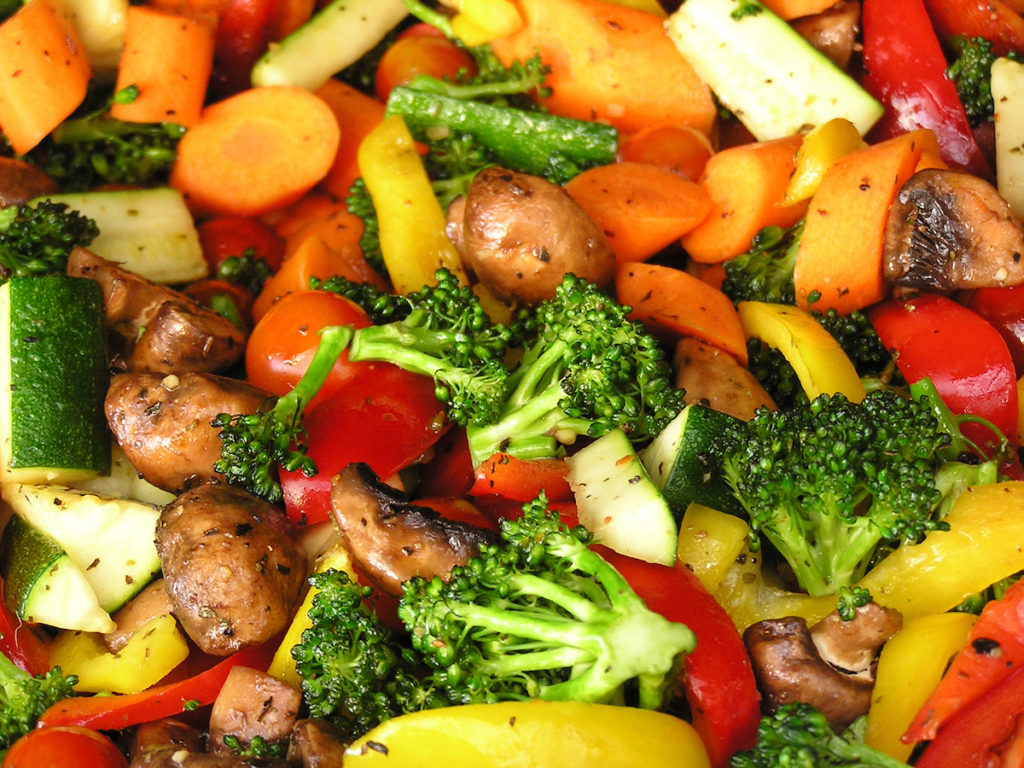
.How to multi task with a newborn
Okay, so we understand proper nutrition is important in the postpartum period, but you’re probably wondering:
how can I eat healthily when my baby requires my undivided attention…
how can I eat healthily when I’m tired…
how can I eat healthily when eating healthy “takes too long” to make…
Well here are a few tips that can help maximize your time.
1. Buy precut items
Buy pre-cut fresh vegetables, canned beans, frozen fruits and vegetables – things that are already prepped and ready to go.
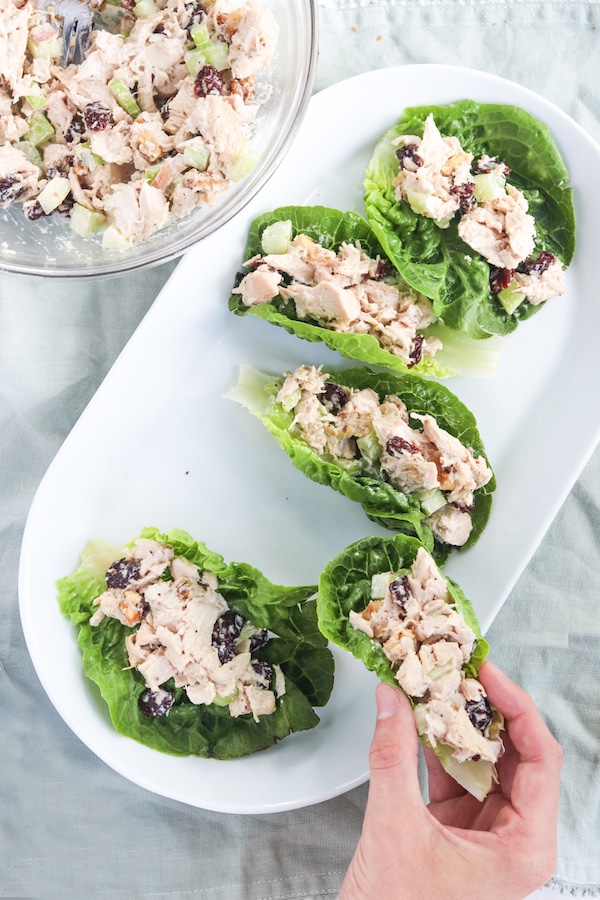
2. Double or triple portion your meals
Freeze or refrigerate your leftovers for future days when you’re tired or busy
3. Cook meals that don’t need your undivided attention
Think of crock pot meals, stews, slow cooked meals, soups etc. Meals that you don’t need to be in the kitchen for the entire time. If your baby starts crying, you don’t have to worry about burning your food.
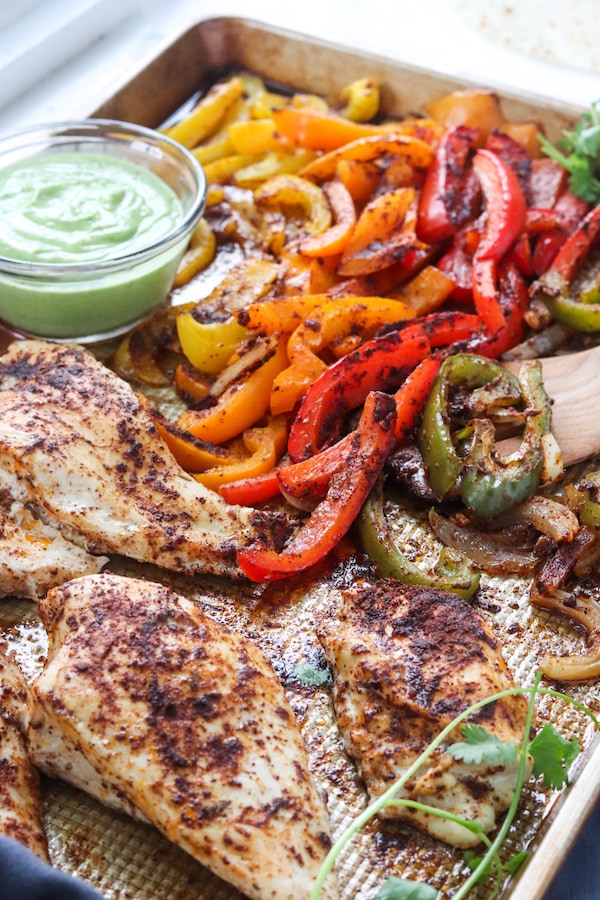
4. Break down the cooking process
Don’t feel like you have to prepare and cook the entire meal all at one time. Break up the process. Cut up some of the vegetables at one point, and cut the other veggies at a later point. Cook the rice, for example, at lunch, then the meat later on in the day, then combine everything around dinner time.
5. Babywear
Thank goodness for babywearing! If your baby loves being held (like all babies do), but you don’t want to be stuck to a couch, then get yourself a baby carrier and baby wear. It’s all about functionality.
6. Take advantage of when your spouse/partner is around
Do your meal prepping on the weekends when your spouse is home so they can either help you in the kitchen, or take care of baby, while you prep the food. If your spouse works all day and you can’t get around to prepping anything during the day, have him join you in the kitchen by either holding the baby or prepping the food with you. You can catch up on your day while in the kitchen.
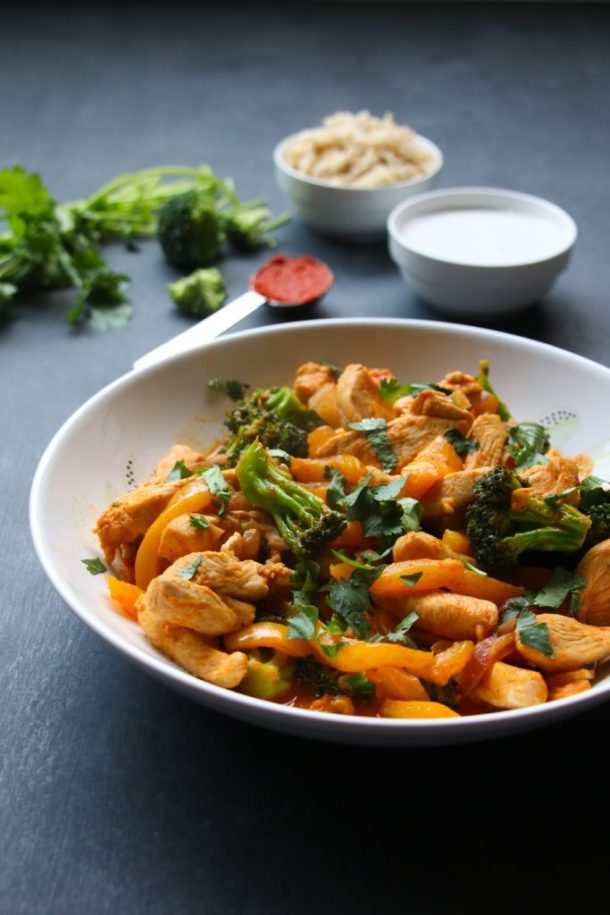
I will say, that you might feel tired initially, especially if you haven’t been eating well, but if you can push yourself to eat several healthy meals then you will gain that energy to continue making healthy meals. It’s like a domino effect.
Now, for your quick and healthy recipes from my fellow RDs:
Breakfasts
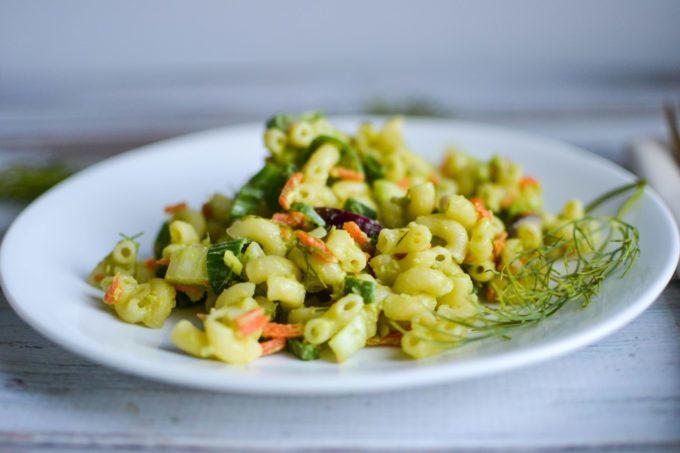
Main Meals
- Southwest Cauliflower Rice Bowl
- One Pan Tuscan Chicken
- Instant Pot Cilantro Chicken and Rice
- All-Year-Round Turkey Cranberry Sandwich
- Avocado Chicken Salad
- Easy Black Beans and Rice
- White Turkey Chili
- Chicken Lettuce Wraps
- Veggie Pasta Bake
- Sheet Pan Breaded Honey Mustard Salmon
- Egg and Veggie Topped Hummus Toast
- Italian Lupini Bean Salad with Crushed Pistachios
- Easy Italian Chicken Sausage
- One Sheet Pan Chicken Fajitas
- Quinoa and Edamame Salad
- Tofu Stir-Fry with Broccoli and Mushrooms
- 20 Minute Red Thai Curry
- Last Minute Black Bean Soup
- Avocado Vegan Pasta Salad
- 5-Ingredient Chicken Salad
And here is another compilation of 19 15-minute healthy meals compiled by another registered dietitian, that I thought I’d share.
